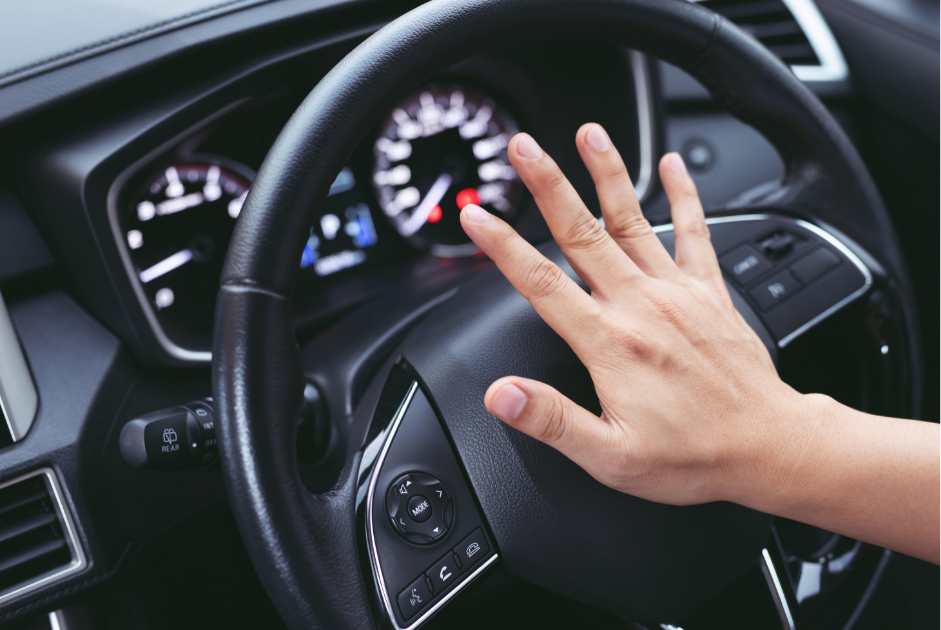This taboo-breaking new company finally gives new mothers what they REALLY need after childbirth. Moms are loving it.

People have an overly-romantic idea of what it's like to bring a newborn into the world, but it makes sense.
Meanwhile, mom may be over the moon with her new child, but she's probably in pretty bad shape.
A poll taken by Orlando Health found that 26% of women who had recently given birth didn't have a plan for their health over the period known as the “fourth trimester," and 41% of those respondents indicated that they felt anxious, overwhelmed, or depressed after giving birth.
“All the attention becomes focused on the baby," Megan Gray, an obstetrician and gynecologist with Orlando Health, told Fox News. “We totally forget about mom."

New mothers Kiki Burger and Amelia Makin decided that if nobody was thinking about mom, then they should.
In January, the pair launched Mor for Moms, a company that sells kits filled with what moms really need after childbirth.
“After our babies were born we were frantically texting each other trying to figure out which products to get to help with the immediate pain and care and we both kept saying, 'Why didn't anyone tell us we would feel like this?'" Makin told Forbes.
“But unlike with everything else for the baby that was usually solved with a single click on Amazon or a stop at a local CVS, we couldn't find the products in one place, or available without buying in large bulk amount," Makin continued.
“Given that 4,000 women give birth a day, it seemed crazy to us that these products just weren't readily available," Makin said.

Mor for Moms sells postpartum self-care kits featuring maternity pads, mesh underwear, cooling pads, ice packs, a cleansing bottle, overnight pads, nipple pads, and nipple cream.
“All of the new moms kept telling us how helpful the kits were and how they felt less alone as they sat in the bathroom trying to figure things out," Makin said. “Pretty soon, people started requesting to purchase them for their friends."
The duo also set up a partnership with Mary's Center, a Washington D.C.-based community resource center. For every kit sold, Mor for Moms donates one to new moms in its Centering Pregnancy Program.
Upworthy got the chance to talk with Mor for Mom's co-founder Kiki Burger about her company and the taboos surrounding childbirth.
Why do you think these products haven't been packaged together before?
From the experience of my co-founder Amelia Makin and me, and what we've heard from many other new moms, it seems like no one has really talked about this before — until the nurse is taking you aside in your hospital bathroom when you can hardly stand up and telling you how your personal hygiene will work for the next week or three. Since there's been so little dialogue around it, we're just not seeing it reflected in the marketplace.
Why is it still taboo to discuss what happens to a woman's body after giving birth?
When you're pregnant, it's all about the mom, but the minute the baby is born, the mom is cast aside and the focus is all on the sweet baby. It's totally understandable, after all newborn babies are super cute and super vulnerable, but there needs to consideration too around the mom's health. How does she recover physically following a major medical procedure is a bit dissonant with the innocent beauty of a newborn.
What's the most difficult thing for women to discuss after giving birth?
How they are really feeling. Physically, it's a messy and hard time. Your body has changed. You have trouble walking. But you tend to never let on to people, trying to match how you think you should look after a baby. I mean, women frequently still look pregnant for awhile after giving birth. That's normal. And then there's the emotional side. Your life has completely changed. Your relationship with your partner has changed. You might experience postpartum depression. Let's just say it's a lot. And it's hard to talk about, especially with someone that didn't just go through it or hasn't before.
What do you know after giving birth that you wish you knew beforehand?
I wish I had known about the greatness that is mesh underwear. But seriously, I wish I had known about the recovery process I was going to experience. I had everything ready for the baby and took all the classes, but had no idea about my own self-care needs. I wish I had supplies ready for me at home. I'll never forget leaving my three-day-old at home to drive to CVS to try and find oversized pads and another squirt bottle. I wandered down the aisles in my diaper looking for these things, and they just don't sell them.
You've identified a huge hole in the market that exists because of the taboos surrounding women and birth. Do you see the same type of holes in the market when it comes to other women's health issues?
Absolutely. Your period, menopause, sex after baby, postpartum depression, women's viagra, the list goes one. With so little talked about, our goal is to at least get the discussion going around post-birth realities and its effects on a woman's body. And fill these gaps with products to make life just a little easier for women, give them one less thing to think and worry about.
Along our personal journey, we were fortunate to be well provided for and had supportive partners. That's why we've also built into our company a nonprofit partnership with Mary's Center, a community-based health center in Washington D.C. With a portion of our sales, we supply a kit to new moms in their Centering Pregnancy Program.





 Teens hanging out in a living room.via
Teens hanging out in a living room.via  Teenagers eating pizza.via
Teenagers eating pizza.via  Teenagers eating pizza.via
Teenagers eating pizza.via 

 Woman disappointed by last minute cancelled plans.
Woman disappointed by last minute cancelled plans.  Sitting closer than necessary to someone is rude.
Sitting closer than necessary to someone is rude.  A person honks their car horn.
A person honks their car horn. 
 Abraham Lincoln portrait by Alexander Gardner in 1865.
Abraham Lincoln portrait by Alexander Gardner in 1865.
 Student smiling in a classroom, working on a laptop.
Student smiling in a classroom, working on a laptop. Students focused and ready to learn in the classroom.
Students focused and ready to learn in the classroom.